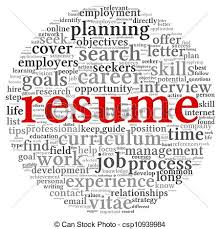Writing a nursing resume is a pressure-packed exercise in self-promotion (in a good way), using concise and meaningful wording, and cramming all your valuable and relevant experience into the shortest possible area. While you’re at it, make sure you have enough visually pleasing white space.
Yikes! No wonder why nurses dread writing resumes. So the next time your resume needs some fine-tuning, do a little multi tasking and look at the chore as an excellent way to prepare for a job interview. All those descriptive and action-packed words you use to describe yourself in your resume take time, so you should think of how you can use them again in your interview.
An effective nursing resume shows your experience, but it also needs to convey what makes you a better employee than anyone else the company is interviewing. If they call you in for an interview, your resume caught their attention. Keep that momentum.
Use Your Resume as an Outline
During your interview, talk up any high points listed in your resume or use them as a springboard for telling the story more completely. Did you achieve a nursing award? Your resume should say so, but you should follow up with the story of how you got the award and what it was given for. Was it for your endless hours of volunteer work? Was it for bravery or excellence? Take those highlights and give the interviewer the bigger picture.
Bring In Those Hard-Earned Words
It probably took a long time to come up with words to describe yourself and to describe your previous experience. Here’s your chance to use them twice. Don’t feel like you have to use every word, but certainly make sure some of your answers to questions use the ones that are particularly applicable. Does your resume say you are organized? Efficient? Accurate? Dedicated? Are you an excellent leader? Drop those words throughout your interview in a way that is most natural to you.
Tell Your Story
You don’t want to limit yourself to what’s on your resume in an interview – you want to really expand on what your resume presents. Think of your resume as the abstract and your interview as the full report. You got their attention, now think of ways to keep it. Decide on a few real highlights or challenges in your working life and a few from your personal life where you persevered and came out in a better place or with a better result for your organization. Did your idea about patient comfort turn into a new hospital policy? Note it on your resume and then talk about how you launched a new initiative that turned into a successful policy and reported an overall 30 percent rise in patient satisfaction. Be clear, give numbers if you can, and don’t generalize. Tell them exactly what you did.
Show, Don’t Tell
Your resume shouldn’t say you are a self-motivated nurse or a respected leader in the field. If you are, your resume should show that. List the classes you have taken, the new nurses you mentor, the professional organizations you belong to, the boards you serve on, the certifications you have, and all the other ways you use your nursing skills to make the world better or healthier. By showing, not telling, anyone who reads your resume will see you are self motivated and hard working. Tell them about your leadership roles, your expert status as an author or researcher and give the numbers again. Tell them more than 80 percent of your mentees go on to get advanced degrees. If you’re just starting out, mention how you presented a paper at a national conference. Don’t make your interviewer guess.
Crafting your resume is challenging, but it’s also a good way to think about how you would answer interview questions. Create your resume with that end goal in mind and you’ll have a stronger resume to get you in the door and a fantastic interview preparation once you sit for the interview.
- WOC Nurses Week Highlights Specialty - April 16, 2024
- Honoring Radiology Nurses Day on April 12 - April 12, 2024
- Travel Offers New Career Possibilities - April 8, 2024



